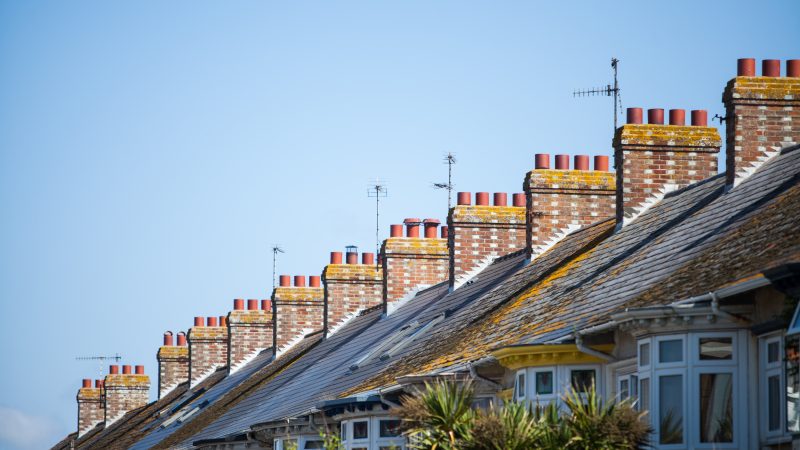
Homeownership is a distant dream for many people. For prospective first-time buyers, it’s often like being on a hamster wheel. They are working hard and saving as much as possible, yet barely moving closer to their goal. Is it any surprise that young people currently feel their country is failing them?
Homeownership among younger people in England has collapsed. The average age of a first-time buyer is now 34, up from 31 two decades ago. The proportion of households aged 25 to 34 owning their home is 39 per cent, down from the peak of 59 per cent in 2000.
Ultimately, this is due to house prices outstripping earnings. The average house price for a first-time buyer in 2024 was around five times average earnings – up from around 4 times average earnings two decades earlier. As a result, the Home Builders Federation estimate it would take the average earner 53 months to secure a deposit in England if every penny after bills was saved. This is an insurmountable barrier for those who don’t benefit from the wealth of parents or other family members.
But while fewer young people are homeowners, the desire to be a first-time buyer remains strong. According to the English Housing Survey, 71 per cent of young renting households expect to buy their own home at some point. The government must urgently tackle the barriers that are preventing this expectation of homeownership from becoming a reality. Otherwise, the country risks serious political consequences from successive generations being locked out of the benefits of homeownership in a country perceived to be failing them.
READ MORE: Labour Party Conference 2025: Full LabourList events programme, revealed
‘Many of the challenges are a direct consequence of Help to Buy’
However, there is no single or easy solution to helping first-time buyers onto the property ladder. Labour must learn from the failures of the Conservatives who thought quick fixes would solve a crisis that is decades in the making.
Their flagship ‘Help to Buy’ scheme was supposed to help first-time buyers buy a property with a lower deposit by lending up to 20 per cent of the cost of a new-build home. Ultimately this drove up prices, as it increased demand at a time when supply was inadequate. Indeed, many of the challenges for first-time buyers today are a direct consequence of ‘Help to Buy’.
The lesson from the Tories’ failure is that there is no long-term solution to helping people become first-time buyers that doesn’t include massively increasing housebuilding. The government’s 1.5m new homes target is, therefore, critical.
But while recent planning reforms will help, the government must go further to unlock hundreds of thousands of additional homes before the next election. And they cannot lose focus on quality, so that a rapid increase in housebuilding doesn’t lead to first-time buyers purchasing poor-quality, inadequate and unsuitable new homes.
Subscribe here to our daily newsletter roundup of Labour news, analysis and comment– and follow us on Bluesky, WhatsApp, X and Facebook.
‘This government must build more homes and make it easier to access a mortgage’
Moreover, increasing housebuilding will inevitably take time to have an impact. There are two more immediate steps that the government should take to help first time-buyers.
First, the government should require that lenders use a record of paying rent on time as evidence that mortgage repayments are affordable. Many individuals have clear evidence that they can afford regular payments, as they are spending far longer in the private rented sector than previous generations. They will often pay far more in rent than they would for a mortgage. The Financial Conduct Authority is currently reviewing lending rules, and this should set out how to open up access to mortgages in this way.
Second, the government should make it easier for people to save for a deposit. This would involve cutting the cost of living for young people, so a lower proportion of their income is going on rent and bills. But ministers should consider how to top up savings, particularly for those who lack access to the ‘bank of mum and dad’. If this was implemented alongside dramatically increased supply, this could help first-time buyers without forcing house prices up.
It will take a long time and a range of policies to make people’s dream of home ownership a reality and to convince young people that they have a stake in the future. But this government must take up that challenge by building more homes and making it easier to access a mortgage.
- SHARE: If you have anything to share that we should be looking into or publishing about this story – or any other topic involving Labour– contact us (strictly anonymously if you wish) at [email protected].
- SUBSCRIBE: Sign up to LabourList’s morning email here for the best briefing on everything Labour, every weekday morning.
- DONATE: If you value our work, please chip in a few pounds a week and become one of our supporters, helping sustain and expand our coverage.
- PARTNER: If you or your organisation might be interested in partnering with us on sponsored events or projects, email [email protected].
- ADVERTISE: If your organisation would like to advertise or run sponsored pieces on LabourList‘s daily newsletter or website, contact our exclusive ad partners Total Politics at [email protected].




More from LabourList
Josh Simons resigns as Cabinet Office minister amid investigation
‘After years of cuts, Labour’s local government settlement begins to put things right’
‘The Sherriff of Wild Westminster: what must change in elections bill’